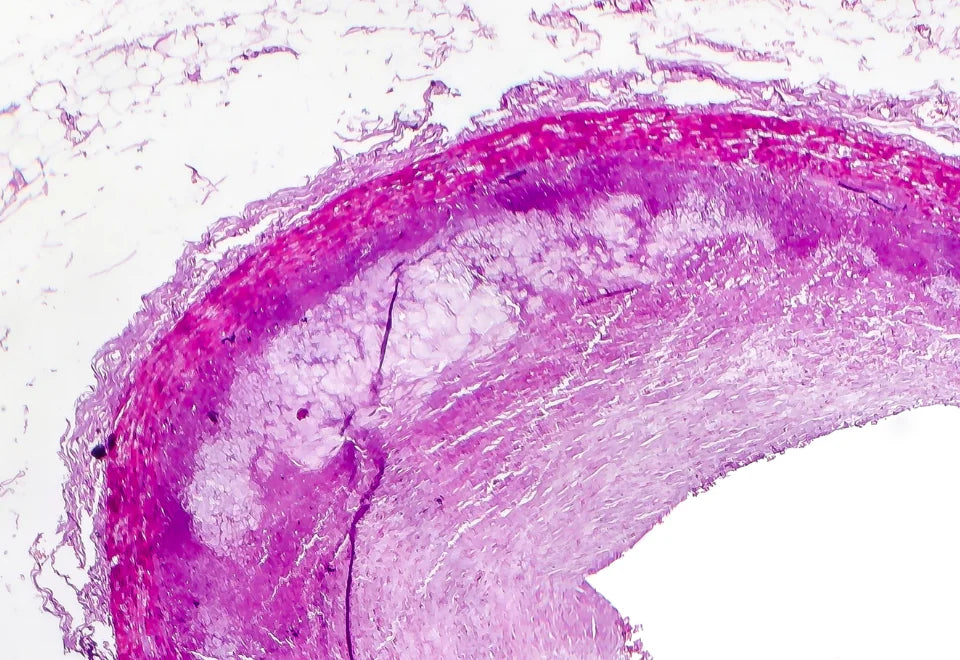Our gut is a complicated system that controls everything, including digestion, the brain, and the immune system. But how do you tell whether your gut health has been impacted? The gut sends out subtle distress signals, which range from evident digestive discomfort to less obvious symptoms. Fortunately, gut health tests and healthy ageing supplements are available to help us improve our gut health. This blog post addresses how gut microbiota affects an individual's health and the significance of gut microbiome analysis.
Understanding Gut Health and Its Importance
Gut health refers to the entire health of the digestive tract. The gut microbes help break down food into nutrients as it passes through the digestive tract, guaranteeing optimal function and absorption.
What is the Gut Microbiome?
The gut contains trillions of bacteria that are essential for optimum health. Variations in the gut microbiome have been linked to a number of illnesses, including obesity, type 2 diabetes, and certain cancers (De Vos et al., 2022). Thus, identifying your unique gut flora with gut health testing is crucial for maintaining balance and avoiding sickness.
How Gut Health Affects Longevity
Study reveals a relationship between the gut microbiome and ageing, with possible implications for longevity. The gut microbiota is formed at birth and evolves with time, influenced by nutrition, lifestyle, and other factors. Research indicates that people with certain abnormalities in their gut microbiota, notably a high dominance of Bacteroides, are less likely to survive in later life. Additionally, the diversity of our microbiomes decreases with age, and this is associated with frailty and a number of age-related diseases. Gut biome analysis and healthy ageing supplements are crucial tools for promoting longevity and overall health.
10 Signs Your Gut Health Might Be Impacting You
Mental Health Issues
The gut and brain are in constant communication, influencing each other’s functions. Dysbiosis (microbial imbalance) can promote neuroinflammation and possibly lead to neurodevelopmental or neurodegenerative illnesses (Sasso et al., 2023).
Sleep Issues
Sleep deprivation has been shown in studies to alter the composition of gut flora. Changes in gut flora can also affect the length and quality of sleep (Smith et al., 2019).
Skin Issues
An unbalanced microbiome causes skin disorders such as acne, psoriasis, and eczema. Regular gut microbiota testing can help preserve skin health (De Pessemier et al., 2021).
Digestive Problems
Acid reflux, bloating, diarrhoea, and constipation are typical signs of gut dysbiosis. Poor gut health is also linked to inflammatory bowel disease and irritable bowel syndrome (Nouvenne et al., 2018).
Food Intolerances
The gut microbiota regulates digestion and protects the intestinal lining. Allergies and food intolerances might occur from a change in this homeostasis.
Autoimmune Disorders
Dysbiosis has been connected to autoimmune diseases since it can impact immune system reactions (Heravi, 2024). This disruption may increase vulnerability to many disorders.
Repeated Infections
An imbalance in the gut flora may weaken the immune system, leading to recurrent infections and inflammatory conditions.
Chronic Fatigue
Chronic fatigue syndrome is linked to a less varied gut flora. Gut health tests can help identify the precise bacterial imbalances that cause this illness.
Hormonal Imbalance
Gut dysbiosis may influence hormonal imbalances, contributing to conditions like polycystic ovary syndrome (PCOS) and other reproductive health issues.
Unexplained Weight Gain
An imbalance in gut flora can encourage fat storage, resulting in weight gain and obesity.
Why a Gut Health Test is Essential for Healthy Ageing
Decoding your gut health with cutting-edge gut health tests, such as Decode Biome by Decode Age, can disclose substantial information about the variety and functionality of your gut flora. Individuals may submit a stool sample for a gut microbiome test to determine the presence of bacteria, viruses, yeast, and parasites. These tests reveal microbial imbalances that impact systemic inflammation, immunological function, and metabolism, all of which are important components of ageing. A gut biome analysis can offer actionable recommendations to maintain a healthy gut microbiome, promoting healthy ageing and reducing the risk of chronic conditions.
Benefits of a Gut Microbiome Test
Gut health tests can disclose critical information about the balance of dangerous and beneficial bacteria in the gut. These tests aid in the identification of pathogens that may contribute to sickness, as well as providing information into how the microbiome influences digestion, inflammation, and overall health. By getting a gut health test, you can take proactive steps to improve your wellness and lower the risk of diseases.
How Gut Biome Analysis Can Improve Longevity
A healthy gut can promote intestinal homeostasis and an increased immune response, potentially leading to a longer life. Dietary changes, lifestyle changes, and supplements can reduce inflammation and anomalies in the gut. Early detection of microbial imbalances through gut microbiome analysis can prevent chronic diseases, such as heart disease, diabetes, and neurological disorders, ultimately promoting a longer, healthier life.
Conclusion
To live a long life, it is essential to comprehend the gut microbiota and how it affects general health. A gut health test can reveal hidden issues that affect anything from immune function to digestion. With this knowledge, you may optimise your gut health and add healthy ageing supplements to improve your overall well-being and lifespan. Taking preventive steps today can enhance not only your gut health but your quality of life in the years ahead.
FAQs
What is a gut microbiome test?
The gut microbiome test is the method used for analysing the health of the individual’s gut microbiota. A stool sample is collected during the gut biome analysis to determine the diversity, balance, and function of gut microbes, including bacteria. With the information obtained from these gut health tests; the experts can recommend personalised dietary advice and appropriate healthy ageing supplements.
How does gut health affect longevity?
Gut health plays a significant role in longevity by influencing various factors that contribute to overall health. A 2021 study found that older adults whose gut microbiomes changed more over time lived longer than those with less microbial change. The study highlighted that a diverse and dynamic gut microbiome was linked to healthier ageing. Those with a more eclectic microbiome also had lower cholesterol levels, faster walking speeds, and higher levels of beneficial blood chemicals—factors that contribute to a longer lifespan. This suggests that maintaining a balanced and adaptive gut microbiome may promote healthier ageing and longevity.
What are the common signs of poor gut health?
Common signs of poor gut health include digestive issues such as gas, bloating, constipation, diarrhoea, and heartburn, which often point to an imbalance in the gut microbiome. A high-sugar diet can exacerbate these issues by disrupting gut bacteria. Additionally, unintentional weight changes, whether gain or loss, may indicate underlying gut health problems affecting metabolism. Sleep disturbances, constant fatigue, and skin irritation, including acne or eczema, are also linked to gut dysfunction. Moreover, autoimmune conditions and food intolerances can develop as a result of gut dysbiosis, highlighting the importance of maintaining a balanced microbiome for overall well-being.
Can supplements improve gut health?
Adding a prebiotic or probiotic supplement to your diet may help improve your gut health. Prebiotics provide food that promotes the growth of good bacteria in the gut, while probiotics provide live good bacteria. However, studies are being still conducted to determine the efficacy of these supplements for gut health. Understanding the unique gut microbiome with gut health tests can also improve the benefits.
How to get a gut microbiome test?
Order Decode biome gut health test kit from our website. Collect a stool sample and send it back to us with the provided package. Once received, our lab team will perform a detailed gut microbiome analysis and send you the test results. You will then receive personalised gut health test results and recommendations to improve your condition.
What do gut health tests show?
Gut health tests involve both blood tests and stool tests. It helps identify microbes like bacteria, fungi, and viruses in the gut, providing deeper insights into the individual’s gut health.






























Leave a comment
All comments are moderated before being published.
This site is protected by hCaptcha and the hCaptcha Privacy Policy and Terms of Service apply.